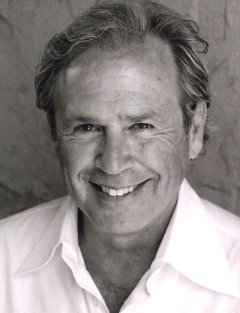How Not to Be a Victim
We all know them. And, truth be told, we have even felt like one every now and then.
I am talking about victims. Being called a victim is almost akin to being labeled a gas guzzler in our enlightened society. After all, victims are people who probably asked for it and most certainly aren’t taking responsibility for their authorship of their dire straights. Right?

Not so fast; this is a complicated subject. After all, some people are most definitely victimized by bad people or bad circumstances. Think of poor Baby Spears. Think Katrina. To take that starkly pop-psychology view-we are all authors of our own realities-can be committing a greater sin: blaming the victim.
“We are all victims of victims,” is what I used to say in lectures I would give on family of origin issues. After one lecture, a man came up to me and said, “Aren’t you just perpetuating the whole myth of the victim? Many use this idea of being the ‘victim of a victim’ as justification for a lifetime of blaming their parents and feeling like their victims.” Yes, in some cases, it could be seen that way. And, as another person reminded me: One’s victimization is another’s joy.
And let’s not forget the issue of “re-victimization.” This is the process by which those who have been victimized in a certain way-say they were humiliated as a child-will repeatedly develop situations as adults where they draw humiliation to themselves.
We could continue to peel back the layers of this smelly onion, but we can all cut to the core and agree that we do not want to be in anyway complicit in our own victimization.
So how do we not be a victim? Here are some suggestions.
If at any point you start feeling like the wife of Joey Buttafuoco, ask yourself a few provocative questions:
One: Is this being done to me personally?Oftentimes, you may discover that a person’s ill behavior toward you is something they do to everyone. It’s not all about you.
Two: Is this being done to me or for me? There is opportunity for learning in those injurious experiences, another chance for important information. You may learn, for example, more about what you do to set yourself up for this re-victimization.
Three: Do you really have no choice? Feeling like a victim often has to do with not feeling in control of your choices, without freedom to choose. Perhaps you are “bifurcating” your world of choice into two extremes, not creatively thinking of other options. Things rarely are black and white.
If all this self-questioning is too taxing, you could try to become more Zen-like in your attitude; remember, “This too shall pass.” The Zen trick is not to get attached to any one of life’s experiences as the harbinger of your destiny.
As Kipling’s memorable poem “If” counsels us: Meet triumph and disaster and treat “those two impostors” as just the same. This kind of wise equanimity is also inherent in a famous piece of AA wisdom: We must be delighted with what God has given us as well as what God has taken away from us : and learn from both.
There is no doubt about it: Life has a nasty inclination for giving us the big old proverbial finger, sometimes when we least expect it. “It’s your ‘going through it’ time,” is how Cynthia, a wonderful African-American woman from the South once vividly told me. It is one of my favorite reminders to keep perspective when it seems life needs some leveling.
Dr. Michael O.L. Seabaugh is a licensed clinical psychologist with a psychotherapy practice in Santa Barbara. Comment at healthspan@mac.com and visit his Web site/blog at HealthspanWeb.com for more information on the topics covered in this column.



